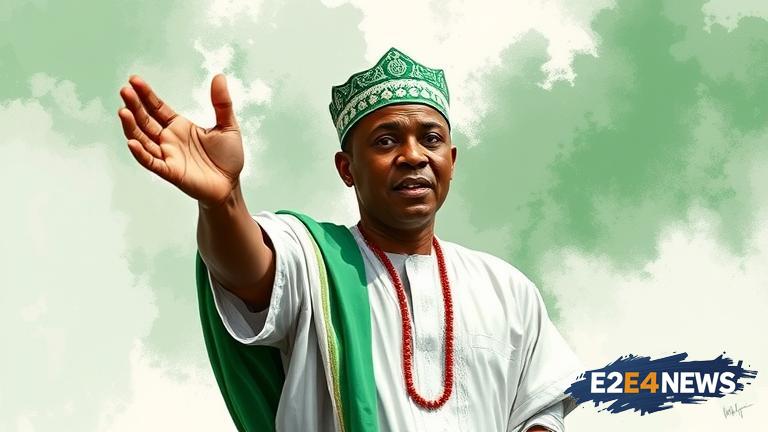The Peoples Democratic Party (PDP) has been a major force in Nigerian politics for decades. Recently, a Lagos chieftain of the party, Laja Adeoye, made a statement that has sparked interest and debate among political observers. According to Adeoye, the PDP will rise stronger without Atiku Abubakar, a former presidential candidate of the party. This statement has been seen as a bold declaration of the party’s ability to thrive without one of its most prominent figures. Atiku Abubakar has been a key player in the PDP for many years, and his departure could have significant implications for the party’s future. However, Adeoye’s statement suggests that the PDP is confident in its ability to move forward and grow without Atiku. The party has been working to rebrand and reposition itself in recent years, and Adeoye’s statement may be seen as a sign of this effort. The PDP has a long history in Nigeria, dating back to the country’s return to democracy in 1999. Over the years, the party has produced several prominent leaders, including former presidents Olusegun Obasanjo and Goodluck Jonathan. Despite facing challenges and setbacks, the PDP remains one of the largest and most influential parties in Nigeria. Adeoye’s statement may be seen as a call to action for party members to come together and work towards a stronger, more united PDP. The party’s ability to rise stronger without Atiku will depend on its ability to adapt to changing circumstances and to present a compelling vision for Nigeria’s future. As the country prepares for upcoming elections, the PDP will be looking to make a strong showing and to demonstrate its relevance and importance in Nigerian politics. The party’s leadership will be crucial in determining its success, and Adeoye’s statement may be seen as a sign of the party’s commitment to moving forward and growing. The PDP’s future without Atiku will be shaped by a variety of factors, including the party’s internal dynamics, the political landscape of Nigeria, and the country’s economic and social challenges. As the party looks to the future, it will be important for its leaders to work together and to present a united front. The PDP’s ability to rise stronger without Atiku will depend on its ability to inspire and motivate its members, as well as to attract new supporters and build alliances with other parties and stakeholders. Overall, Adeoye’s statement suggests that the PDP is confident in its ability to thrive and grow, even without one of its most prominent figures.
